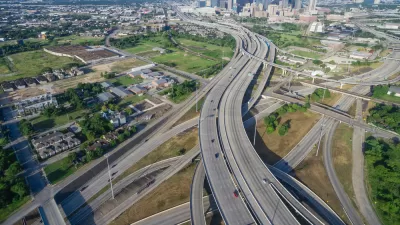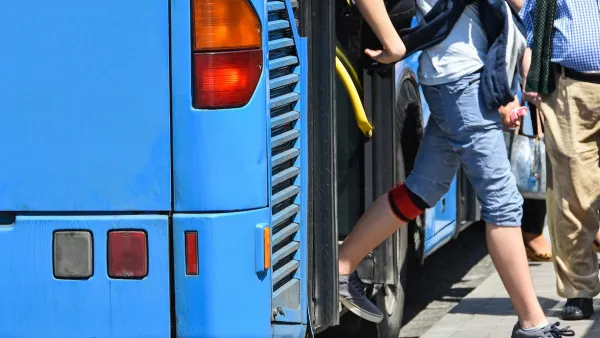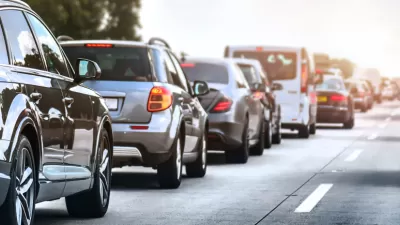Mobility as a Service (MaaS) relies on technology to streamline transportation and improve access. But apps are not going to be enough for people to leave their cars behind.

David Zipper takes a closer look at Mobility as a Service (MaaS) and its potential to shift people from driving to other more sustainable modes. "Boosters of the concept hail it as a means of weaning commuters off privately owned automobiles via technology platforms that allow them to easily book and plan trips across an array of urban transportation services—including transit, bikeshare, ride hail, e-scooters, and more."
The goal is admirable, says Zipper, but he challenges the notion that technology is a mobility solution more than just a tool. Apps can help travelers navigate transportation systems, but they cannot create accessible and robust mobility networks. For that, policy and planning need to address service and infrastructure issues.
Increased transit frequency, improved biking infrastructure, and higher driving costs provide incentives for people to look to alternatives to auto use. MaaS can bring a variety of modes together onto one platform, says Zipper. "But we should be realistic: Without supportive policies and investment decisions, the smartest MaaS technology in the world won’t be able to liberate cities from our reliance on automobility."
FULL STORY: There’s No App for Getting People Out of Their Cars

Planetizen Federal Action Tracker
A weekly monitor of how Trump’s orders and actions are impacting planners and planning in America.

Maui's Vacation Rental Debate Turns Ugly
Verbal attacks, misinformation campaigns and fistfights plague a high-stakes debate to convert thousands of vacation rentals into long-term housing.

Restaurant Patios Were a Pandemic Win — Why Were They so Hard to Keep?
Social distancing requirements and changes in travel patterns prompted cities to pilot new uses for street and sidewalk space. Then it got complicated.

In California Battle of Housing vs. Environment, Housing Just Won
A new state law significantly limits the power of CEQA, an environmental review law that served as a powerful tool for blocking new development.

Boulder Eliminates Parking Minimums Citywide
Officials estimate the cost of building a single underground parking space at up to $100,000.

Orange County, Florida Adopts Largest US “Sprawl Repair” Code
The ‘Orange Code’ seeks to rectify decades of sprawl-inducing, car-oriented development.
Urban Design for Planners 1: Software Tools
This six-course series explores essential urban design concepts using open source software and equips planners with the tools they need to participate fully in the urban design process.
Planning for Universal Design
Learn the tools for implementing Universal Design in planning regulations.
Heyer Gruel & Associates PA
JM Goldson LLC
Custer County Colorado
City of Camden Redevelopment Agency
City of Astoria
Transportation Research & Education Center (TREC) at Portland State University
Jefferson Parish Government
Camden Redevelopment Agency
City of Claremont





























